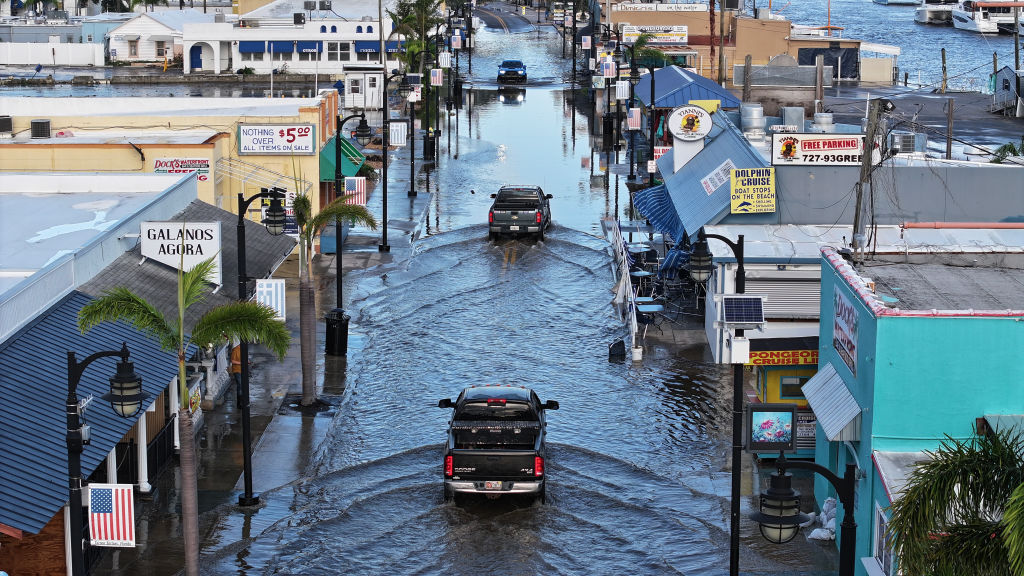
As work continues to address the harm inflicted by Hurricane Helene, researchers at Colorado State University (CSU) warn that the next two weeks “will be characterized by [tropical storm] activity at above normal levels.”
The CSU researchers define “above normal” by accumulated cyclone energy (ACE) of more than 10. This level of hurricane intensity has been reached in less than one-third of two-week periods in early October since records have been kept.
Hurricane Kirk, they wrote, is “extremely likely” to generate more than 10 ACE during its lifetime in the eastern/central Atlantic. Tropical Depression 13 has just formed and is likely to generate considerable ACE in its lifetime across the Atlantic. The National Hurricane Center is monitoring an additional area for formation in the Gulf of Mexico that should be monitored for potential U.S. impacts.
“Hurricane Kirk is forecast to track northwestward across the open Atlantic over the next few days, likely becoming a powerful major hurricane in the process,” said CSU research scientist and Triple-I Non-resident Scholar Phil Klotzbach. “The system looks to generate approximately an additional 20 ACE before dissipation, effectively guaranteeing the above-normal category for the two-week period.”
With more than 160 people confirmed dead in Florida, Georgia, South Carolina, North Carolina, Virginia, and Tennessee, Helene is now the second-deadliest hurricane to strike the mainland United States in the past 55 years, topped only by Hurricane Katrina in 2005.
Reinsurance broker Gallagher Re predicts that private insurance market losses from Helene will rise to the mid-to-high single-digit billion dollar level, higher than its pre-landfall forecast of $3 billion to $6 billion, according to Chief Science Officer and Meteorologist Steve Bowen.
As always – and with particular urgency in the wake of Helene’s devastation – Triple-I urges everyone in hurricane-prone areas to stay informed, be prepared, and follow the instructions of local authorities. We also ask that people be mindful of the potential for flood danger far inland, as reflected in the experiences of many non-coastal communities during Hurricane Ida and Helene.
Learn More:
How to Prepare for Hurricane Season
Triple-I “State of the Risk” Issues Brief: Hurricanes
Hurricanes Don’t Just Affect Coasts; Experts Say: “Get Flood Insurance”

